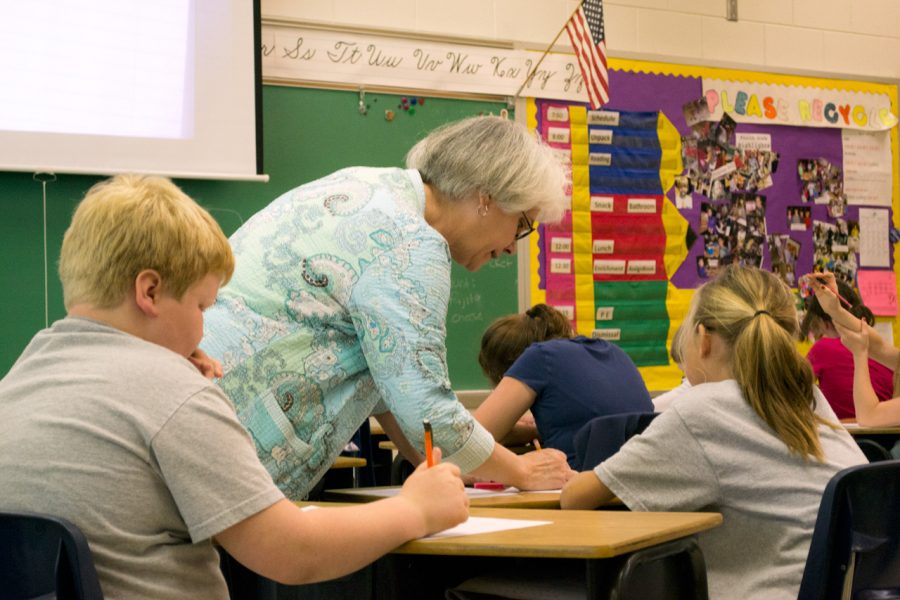Administration continues discussion of future of lab school
April 26, 2012
The academic affairs and student life subcommittee of the UNA board of trustees met April 19 to discuss the future of Kilby Laboratory School on campus.
UNA President Bill Cale pointed out what he said are three feasible options for the committee members to review. The first option includes Kilby merging with Florence City Schools, the second includes seeking financial remedy from the state and the third is to determine if Kilby is central to the mission of the university, Cale said.
“The budget situation for the institution continues to be difficult,” Cale said. “We’ve managed the budget situation well, but it doesn’t seem to be improving.”
The university has lost approximately $10 million since 2008, Cale said. He also said the university’s subsidy to the lab school has ranged from $200,000 to $350,000.
Cale said the decision is not about the budget because UNA could find a way to fund the school. It is about whether the school is central to the university’s mission.
“For me, the most important question that we need to look at (is) … what is the relationship between a school like Kilby and the university,” Cale said. “This notion of central to the mission has nothing to do with money.”
Cale said the fact UNA is subsidizing Kilby is not a basis for the discussion; it is whether Kilby benefits the university.
Kilby receives the bulk of its funding from Lauderdale County Schools. Proration in the state has been hard on the lab school, he said.
“Even if we returned to normal funding, Kilby’s budget situation may not get better,” Cale said.
Dr. Janet Womack, superintendent of Florence City Schools, attended the meeting and answered questions the board members had regarding a possible transition of Kilby into the Florence City School system.
Womack’s proposal included the immediate removal of the fifth and sixth grades because Florence City Schools maintains elementary grade levels from kindergarten to the fourth grade.
“We see this as a five-year transition in knowing that it’s not something that happens overnight,” Womack said.
Womack said she wants to partner with UNA to spread lab students throughout the district.
“What I would like to see as we go forward is (to) spread the success of Kilby across the system,” she said.
Many parents are not impressed with what was presented before them, said PTO President Carole Maynard.
“Parents feel deceived; they feel frustrated that the process has not been an open, honest campus-wide discussion,” Maynard said. “Students have not even been included; the issue hasn’t been completely vetted through shared governance.”
Maynard said many parents feel that the decision has come too soon.
“We have passed the local deadlines for school selections and admission; therefore, our parents of fifth and sixth graders and pre-k students have been left without choices because the deadlines have been passed,” Maynard said.
UNA alumna, parent of a Kilby student and former UNA SGA President Michelle Eubanks said she feels the UNA administration is picking on children with this decision.
“Why are you picking on Kilby?” she said. “Why are you picking on 145 kindergarteners through sixth graders?”
Eubanks said she is upset that UNA officials have decided to act and vote upon this issue so soon, even though Cale told the parents at a PTO meeting earlier this year that the school would be open another year. Eubanks said the officials making the decisions have not fully educated themselves on the issue at hand.
“Until (Cale) has educated himself, spoken to more children, spent more time in the facility, spent more time speaking to the faculty and the parents, he should not make a decision,” Eubanks said.
Eubanks said she feels embarrassed to be a UNA graduate because of the way the administrators are acting.
“As far as I am concerned, I feel like my diploma is being devalued with decisions like that,” she said. “As an alumni, I have no voice. As a parent of a Kilby child, I have no voice. As a community member, I have no voice. That’s not right.”
Maynard said UNA employees being able to take advantage of Kilby School is a benefit for faculty and staff members.
According to UNA’s website, the human resources department advertises to potential faculty and staff members that their children will have first preference in admission to Kilby School.
“We value exceptional education and to find out that the university had a laboratory school spoke volumes to us about the mission of the university, (because) it was invested in providing exceptional educational experiences,” Maynard said.
Not only do education students get to utilize Kilby, but professors get to conduct research and teach their classes on the elementary campus, Maynard said.
Board of Trustees Member Libby Jordan, who chairs the subcommittee charged with looking into the Kilby issue, said the board will discuss it at their retreat in May and possibly during the regular June meeting.
Board of Trustees President Pro Tem Steve Pierce said the school, if the administration chooses to keep it, needs to be funded better in order for it to perform as a fully-functional lab school.
According to documents provided by Cale, in order to get the lab school up to par, it would cost the university approximately $462,489. The amount provided would be slightly more than $200,000 more than UNA currently provides.
The university’s overall operating budget is just over $80 million, said Vice President Dr. Steven Smith. This year’s current subsidy to Kilby School is approximately $218,000.
Maynard and other Kilby parents are organizing Facebook and letter writing campaigns to get the word out. For more information on the “Kilby Strong” campaign, visit www.kilbystrong.com or visit the Kilby School Facebook page.












